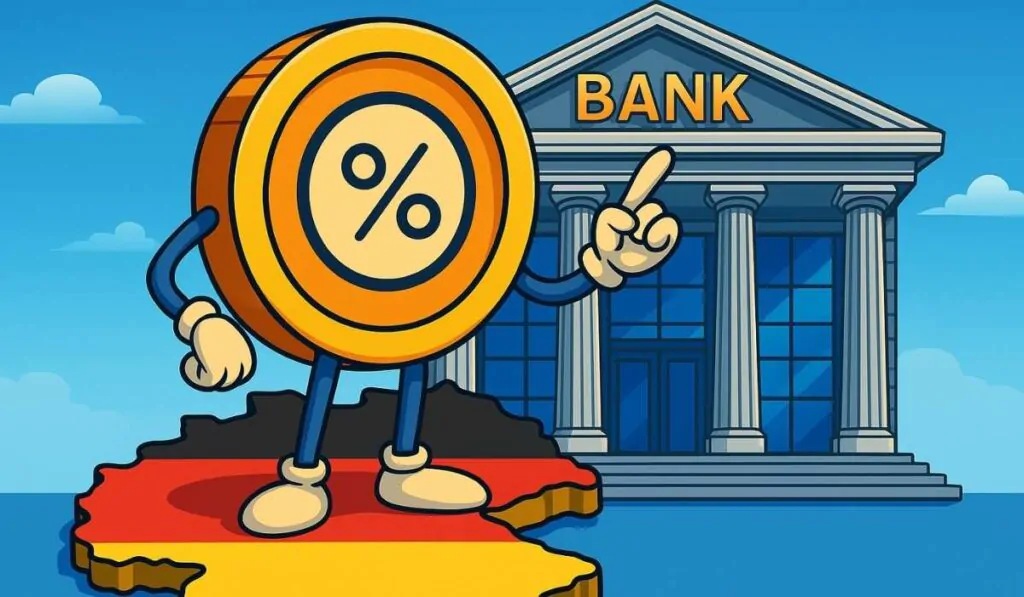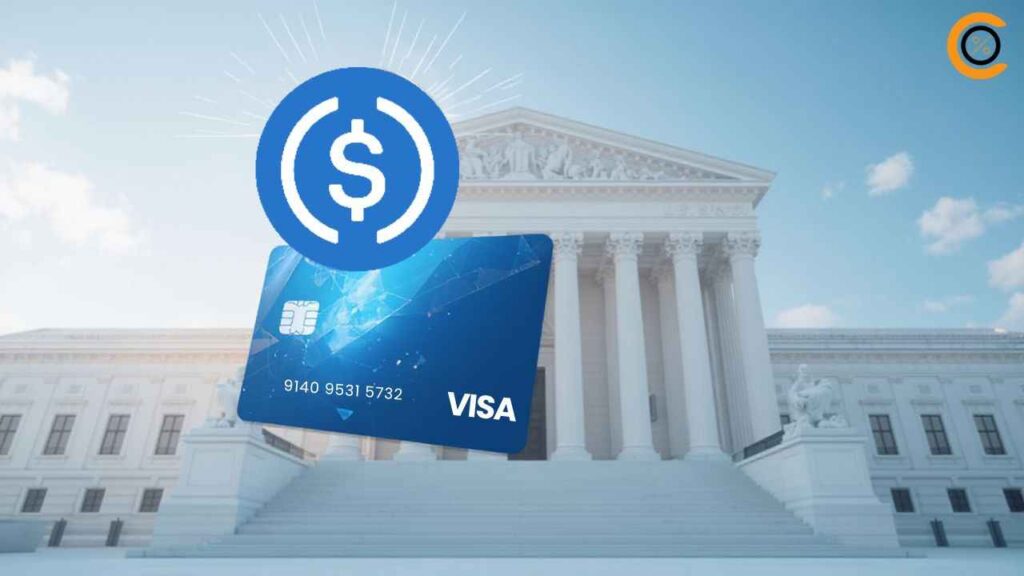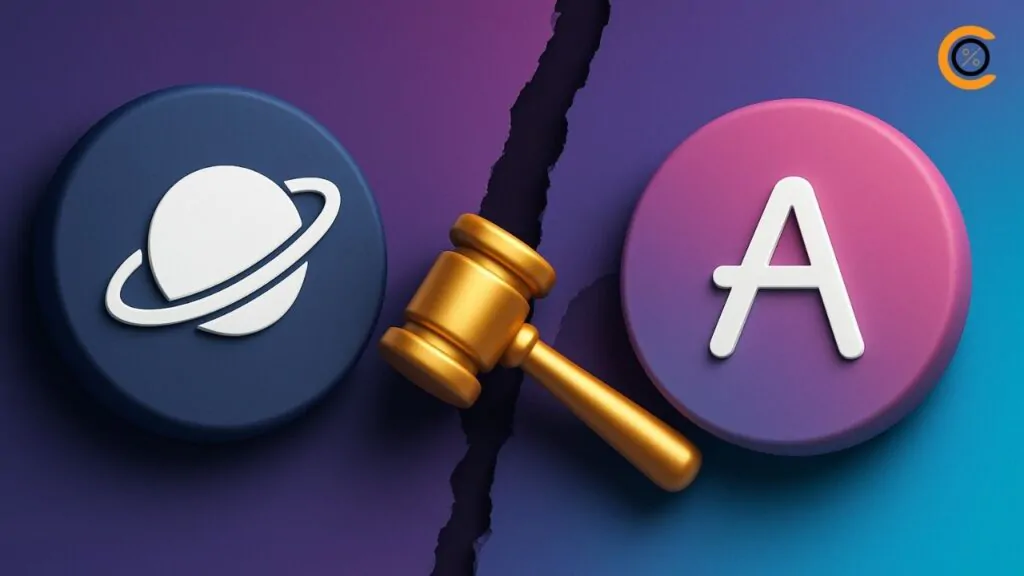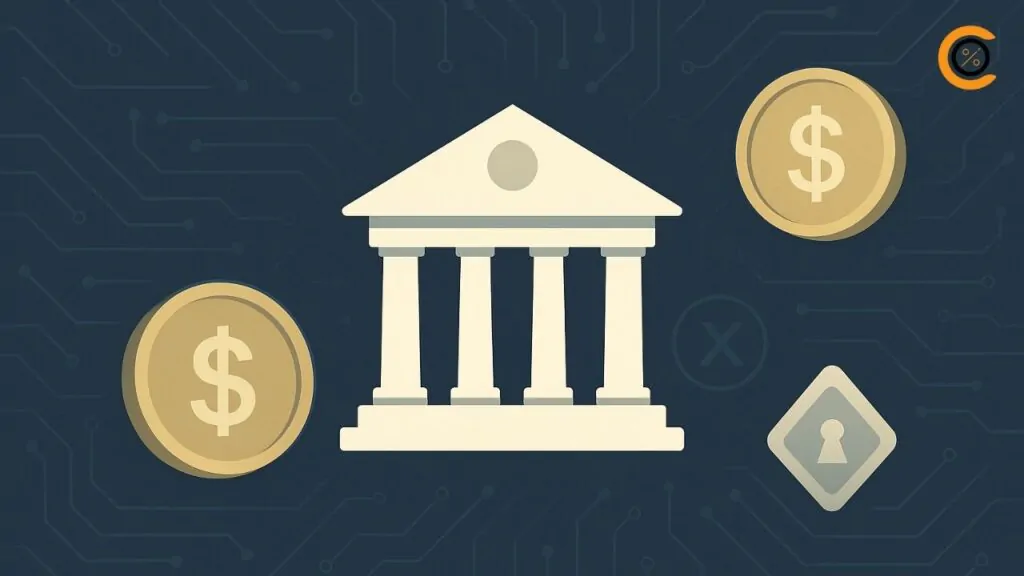- Sparkassen will launch crypto trading by 2026, letting 50M users access Bitcoin and Ether through its regulated banking app.
- The move marks a major shift from Sparkassen’s 2015 crypto ban, now operating under the EU’s MiCA framework.
- Other German banks like DZ Bank and Deutsche Bank are also entering crypto, signaling broader institutional adoption.
Germany’s biggest banking group, Sparkassen-Finanzgruppe, is planning to introduce crypto trading services for its 50 million customers by mid-2026. This marks a notable shift for a bank that once blocked crypto transactions altogether. Now, backed by regulatory clarity under the EU’s MiCA framework, Sparkassen is preparing to allow users to trade Bitcoin and Ether directly through its mobile banking app.
A Big Shift: Sparkassen Opens the Door to Crypto
Germany’s largest banking group, Sparkassen-Finanzgruppe, is officially preparing to enter the crypto space, a notable shift from its long-standing resistance. Back in 2015, the institution had not only dismissed digital assets but also blocked customer crypto transactions entirely, citing high volatility and regulatory uncertainty.
Now, nearly a decade later, Sparkassen plans to launch crypto trading services for its 50 million customers by summer 2026. The offering will be integrated into the group’s mobile banking app, enabling direct access to Bitcoin and Ether without third-party platforms. According to the German Savings Banks Association (DSGV), the service will operate under the EU’s MiCA regulatory framework and provide “reliable, regulated” access to crypto, though it will not be advertised. The bank maintains that cryptocurrencies are highly speculative, and users will receive clear risk disclosures, including warnings about the potential for total loss.
This development marks a pivotal moment in Germany’s financial sector, positioning Sparkassen as the first major German bank to offer crypto trading at scale.
From Ban to Adoption: A Complete Policy Turnaround
Sparkassen’s current stance is a complete reversal from its earlier position. Back in 2015, the bank had actively blocked customer transactions involving cryptocurrencies, citing volatility and risk. At the time, its executives dismissed crypto as too speculative and unsuitable for retail clients.
Now, nearly a decade later, the bank is aligning its offering with EU’s MiCA (Markets in Crypto-Assets) regulation, which provides legal clarity and structured guidelines for crypto services across the European Union.
However, Sparkassen isn’t shedding its caution entirely. The German Savings Banks Association (DSGV) reiterated that digital assets are “highly speculative” and warned that the new service will not be promoted through ads. Customers will instead receive direct, transparent information about associated risks, including the potential for total loss.
Powered by Dekabank: Secure Access Through the Sparkasse App
The infrastructure behind this new crypto offering will be handled by Dekabank, a subsidiary of Sparkassen with prior experience in digital asset services. Dekabank will be responsible for enabling crypto trades within the Sparkasse app, initially supporting only Bitcoin and Ether.
By keeping everything in-house, from wallet to execution, the bank aims to offer a seamless experience while maintaining oversight and compliance. According to the DSGV, this setup ensures “reliable access to a regulated crypto offering”, in line with MiCA standards on consumer protection, transparency, and custody.
German Banks Moving In Sync With Regulation
Sparkassen is not alone. Several other major banks in Germany are also expanding into crypto:
- DZ Bank, the country’s second-largest lender, partnered with Boerse Stuttgart Digital in 2024 to pilot crypto trading and custody. The pilot is expected to extend across its 700 cooperative banks.
- Landesbank Baden-Württemberg, the largest federal bank, teamed up with Bitpanda to offer institutional crypto custody.
- Deutsche Bank, meanwhile, confirmed plans to launch a crypto custody platform in 2026, also using Bitpanda’s tech alongside Swiss partner Taurus SA.
With these developments, crypto is gradually becoming part of the mainstream banking experience in Germany, especially for institutions that once viewed it as fringe or risky.
A Tale of Two Regulations: Germany vs the UK
While Germany is opening up to crypto trading under MiCA, the United Kingdom is moving in the opposite direction. The Bank of England has signaled plans to limit crypto exposure for banks, likely capping holdings of volatile digital assets like Bitcoin to 1% of Tier 1 capital, in accordance with Basel Committee guidelines.
This contrast between German openness and UK conservatism paints a broader picture of regulatory divergence in Europe, one where customer demand and institutional risk appetite are forcing national systems to chart separate paths.
Looking Ahead
Sparkassen’s decision to offer crypto trading by 2026 is more than a policy update, it’s a clear signal that digital assets are being normalized within traditional financial institutions. With a regulated framework in place, customer protection emphasized, and experienced partners like Dekabank leading the charge, Sparkassen is setting a precedent for how major German banks can integrate crypto responsibly.
As regulatory clarity improves across the EU and more banks follow suit, the divide between crypto and conventional banking appears to be narrowing, at least in Germany.







